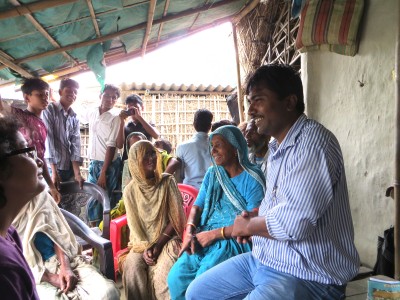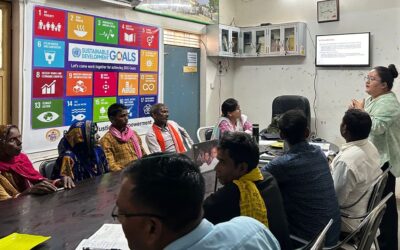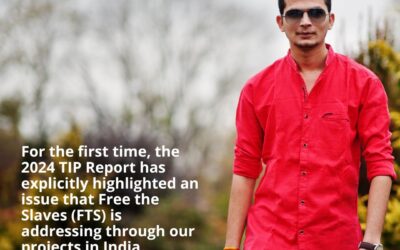Editor’s Note: This is the first of three dispatches we will feature this week written by Free the Slaves Executive Director Maurice Middleberg during his recent trip to India.
DATELINE: Majgama village, Araria District, Bihar State, India
Ishtiaq Hasib was only 10 when the trafficker came. The man befriended the boy, and five of his friends, as they walked back and forth to school.
“Good jobs. Money,” he told the boys. “Clothes. Mobile phones.” All these could be had if the boys went with the trafficker.
But it had to be a secret. Parents were not to be told – they would be so proud when the boys brought home these treasures.
It was an enticing offer for a boy in Majgama, a very poor rural village where people earn $2 to $3 a day as laborers on farms. Cattle, water buffalo and chickens live side-by-side with people here in simple dwellings. The boys were dazzled by the trafficker’s promises.
Of course, the promises were lies. Ishtiaq and his friends landed in a factory in India’s capital city, Delhi, manufacturing bindis, the symbol many Indians wear on their foreheads. No wages were paid – only enough food for the boys to subsist.
“From the beginning, we were beaten because we didn’t know what to do,” Ishtiaq told me. The trafficker would slap them and beat them with tools. Ishtiaq saw one boy beaten severely, causing head injuries. Boys who were hurt too badly to work were thrown onto the street, he said.
“When my child was taken away it felt like I had been shot in the heart,” recalls Ishtiaq’s father, Mohammed Hasib.
Fortunately, Ishtiaq and his family were lucky. Four days after he arrived in Delhi, a police raid liberated 96 children from the bindi factory.
At this point, MSEMVS, a local Indian NGO supported by Free the Slaves, intervened to prevent future cases of trafficking in Ishtiaq’s village. His father agreed to lead the formation of a village committee dedicated to protecting residents from trafficking. Educational sessions were organized for villagers, including the children. These sessions have taught villagers about the perils of trafficking and how to recognize traffickers. The committee is also working to gain access to essential services and credit, so that people are less vulnerable to the lures of traffickers.
“We were unaware that such things happened,” Mr. Hasib told me. “Now we know, and the trafficker doesn’t come here anymore.”

Members of the Majgama community vigilance committee | Photo: FTS / Middleberg
With help from FTS partner MSEMVS, Mr. Hasib has reached out to four surrounding villages to help them organize committees that can educate and protect their communities. They are learning the danger signs of trafficking. Mr. Hasib and the MSEMVS activist have given their mobile phone numbers to the other villages so they can call if they see signs of trouble. Through this process, six missing children have been identified; one has been tracked down and rescued and efforts are underway to find the others.
“Traffickers are now scared of us,” said Mr. Hasib.
What is needed now is to expand this circle of prevention. That involves educating and mobilizing parents, children and communities. Free the Slaves and MSEMVS are working together to ensure that many more villages can protect themselves from the predations of traffickers. With the help of our supporters, we can ensure that there are fewer cases like Ishtiaq’s.
Learn more about Free the Slaves successes in India on our India program webpage. See our newest video of a rescue in India on our YouTube channel.



